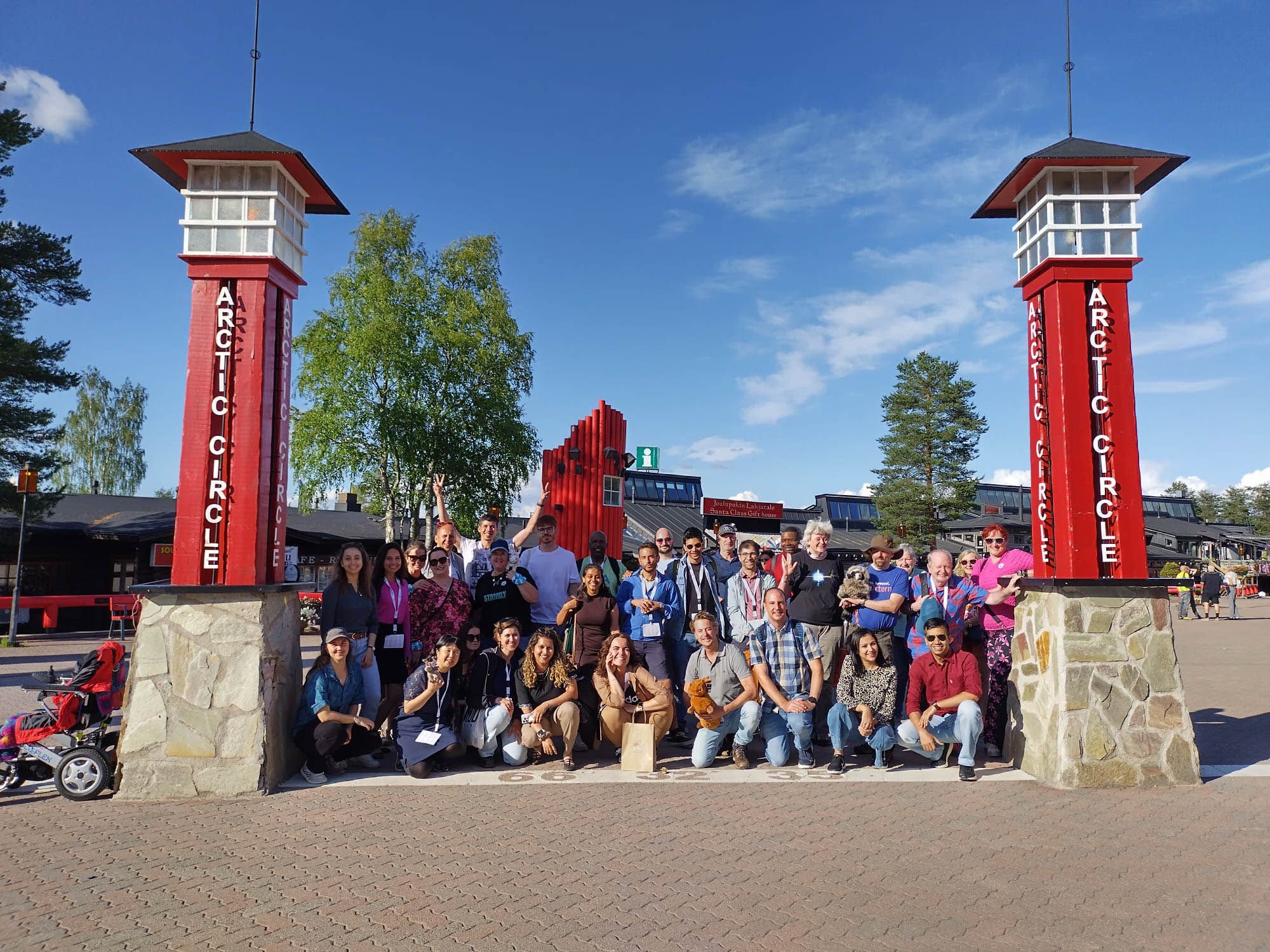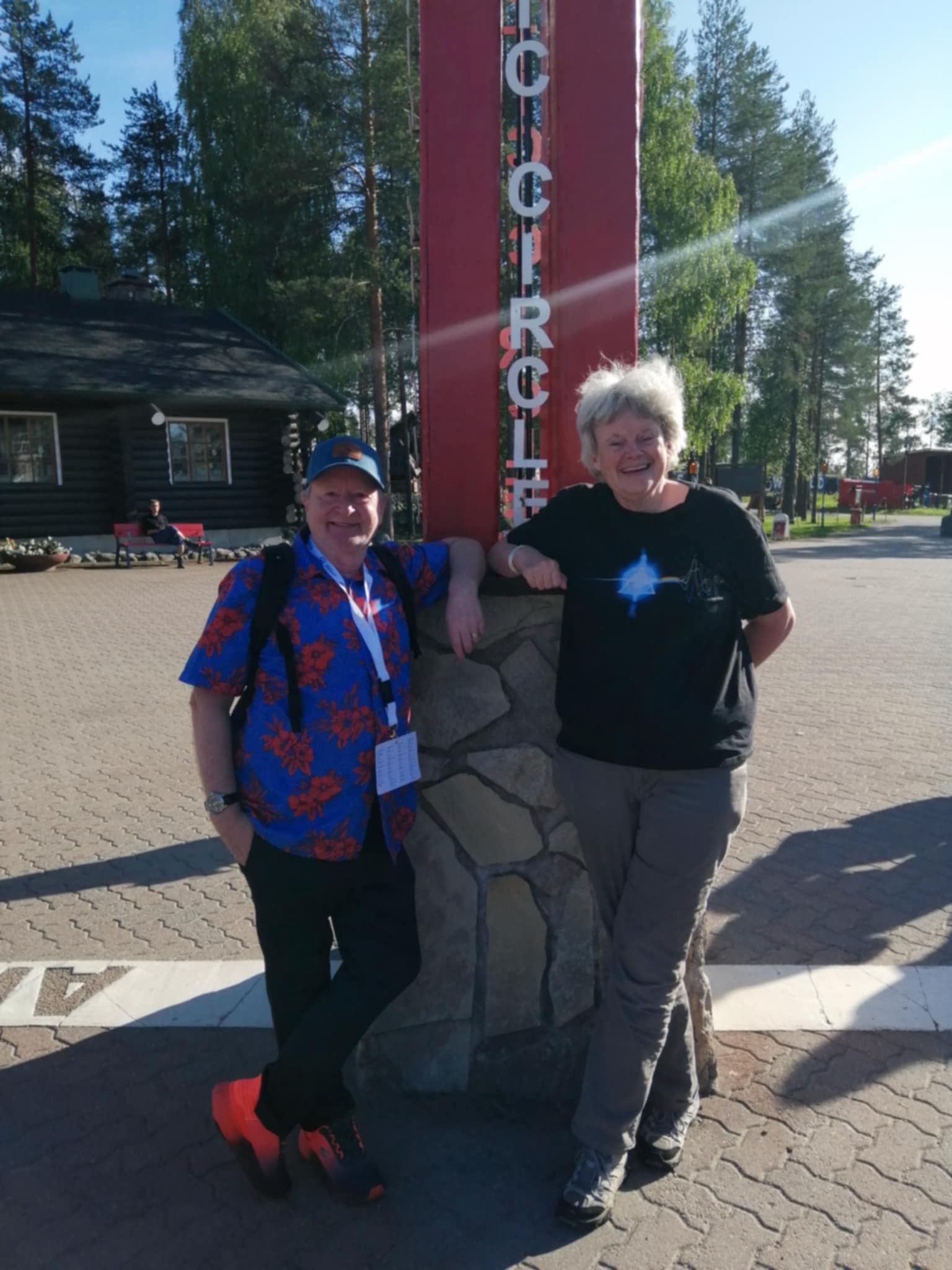I have recently had the exceedingly good fortune to attend both (a) the ISA World Congress (International Stuttering Association) in far-northern Finland in August of 2025, and (b) the inaugural “STARS” Conference (Stuttering Treatment and Research Society) in Laguna Niguel in Southern California the following month.
ISA World Congress 2025 (International Stuttering Association)
The Finland conference was filled with both old familiar faces, and some new ones with whom I am keeping in touch. It was the usual marathon of presentations, and both formal and informal social activities. Anyone who has been to a stuttering conference is very familiar with this …
There are a surprisingly large number of stuttering organizations worldwide: the myriad of national ones such as the Canadian Stuttering Association, National Stuttering Association, Stamma, and then the international ones such as the International Stuttering Association, World Stuttering Network, 50 Million Voices and Stamily. The former tend to focus on events and advocacy in their own countries and the latter freely hop over the national boundaries.
The international conferences are a great way to meet people from all over the world and gain insight as to how stuttering/stammering is regarded in their countries.

Some of us have the fortune to live where it is a recognized disability and there is growing understanding of the condition, and others are distressingly still regarded with great suspicion due to their speech.
Stuttering, like so many other conditions, is indeed a vast spectrum. The people on the “milder” end may well choose to conceal it, and then the more severe people like myself face the choice of (a) simply not speaking, or (b) wearing it on their sleeves. Indeed one of my “gym buddies” said that if he spoke like I do, he simply wouldn’t. Having been in that position myself for many years, I know that is not a good option.
“STARS” Conference (Stuttering Treatment and Research Society)
This is a good segue into my recollection of the “STARS” conference. Organized by Dr. Gerald Maguire, one of the true giants in the stuttering world, this organization is dedicated to the neurological basis of stuttering and using that knowledge to enhance treatment options. Speech therapy can be difficult/expensive to obtain and it does not work for all people: STARS seeks to provide a deeper understanding of the underlying science and how that can be used to develop more comprehensive therapies.
Most of the people there were in the medical profession: neurologists, psychiatrists, and SLPs with a scattering of people who stutter without any specialized training in the field (like myself). It is very heartening to see the research that is underway.
At the end of one of the presentations, I felt compelled to stand up and share some of my thoughts. The speaker was talking about “stuttering pride” (certainly not a bad thing, but it can be a double-edged sword): I said that while we do need to accept ourselves and be proud of our accomplishments (yes I am a rocket scientist!), we can’t let that blind us to the fact that being a severe stutterer can make daily life very challenging. We must not let it stop us advocating for better understanding of the underlying neurology and pushing for more effective treatment options. I myself am still hung up on routinely having people interrupt and refuse to listen to me and indeed in 2022, an actual MD wanted to “put me into a home” due to my speech. I contracted a bad case of COVID and dragged myself to a “test and treat center”: I was weak, feverish and my speech was miserable. Instead of being asked about my symptoms and underlying medical conditions, I was instead fielding questions of “can you feed yourself”, “can you dress yourself”, etc. Had I not been putting all my energy into not fainting, I would have responded with something like “here is my resume, <insert unkind word here>” but unfortunately for the sake of my ego, I was pre-occupied with remaining vertical.
But the fact that this can happen, even in the United States in 2022, makes a strong case that we desperately need more understanding of what stuttering is, what it is not, and educating people (including all of the “front-line workers” such as doctors, nurses, police officers, and customs officials) that we are not nervous or crazy or stupid: we just speak differently.
There were of course, numerous side conversations, with all the conference attendees, too many to recount. But connections have been made. I did mention to a psychiatrist to listen for the stuttering that he isn’t hearing: why is the patient so quiet, why do they have someone speak for them?
In life, we need to listen more intently for what isn’t being said, than what is.
Catherine Moroney has been active in the stuttering community in both Canada and the United States for over 20 years. In her professional life, Catherine is a physicist and software engineer working for NASA, analyzing satellite data. Catherine grew up in Montreal and Toronto, and despite living in the US for many years, considers Canada to be her home.
